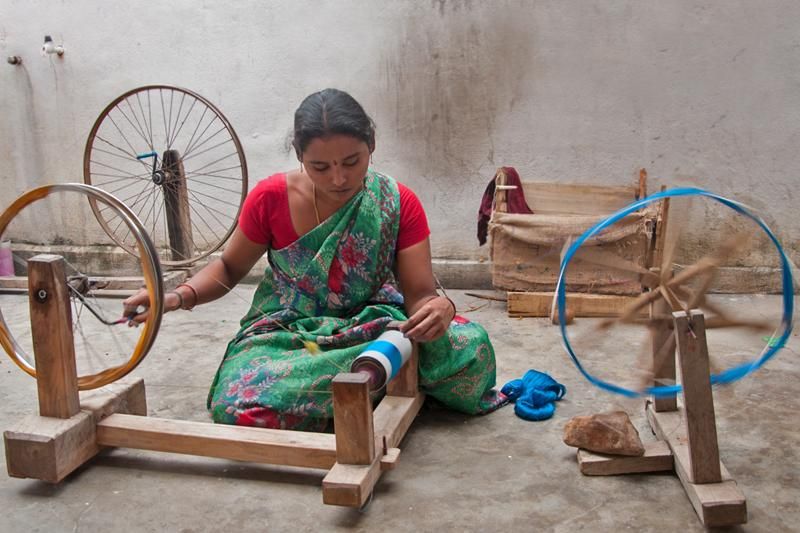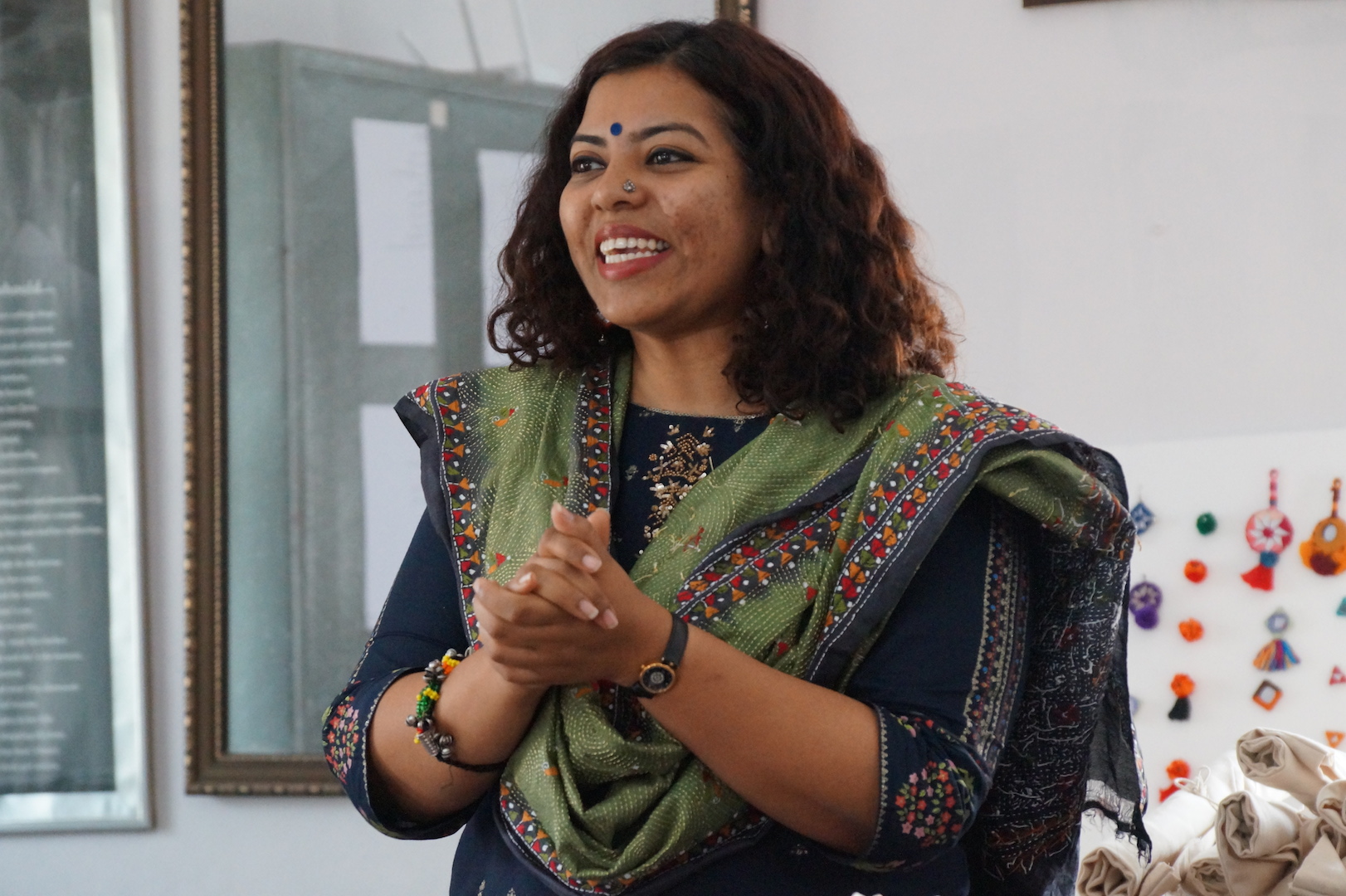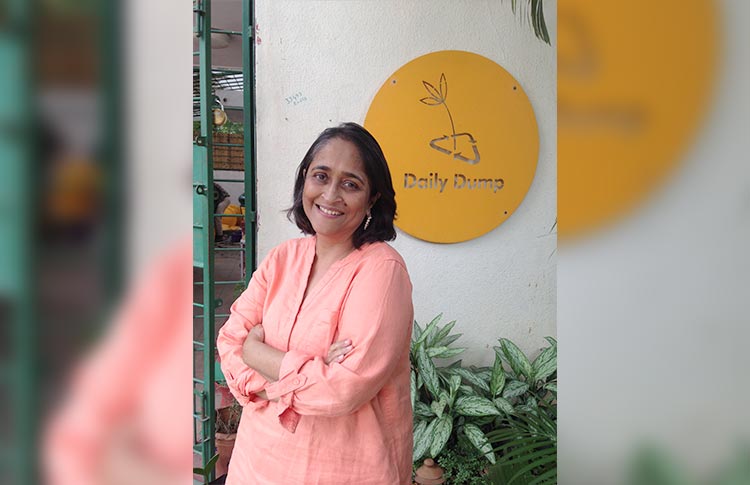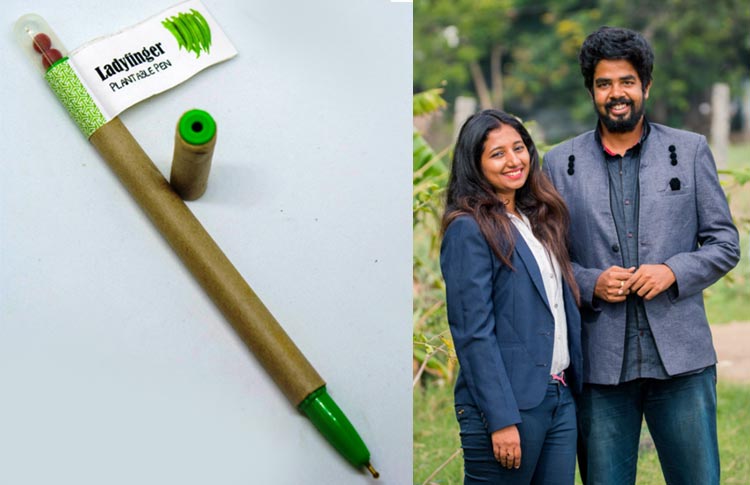22 Y.O. Social Entrepreneur Is Reinventing Waste Management, One TrashBot At A Time
- IWB Post
- May 3, 2019
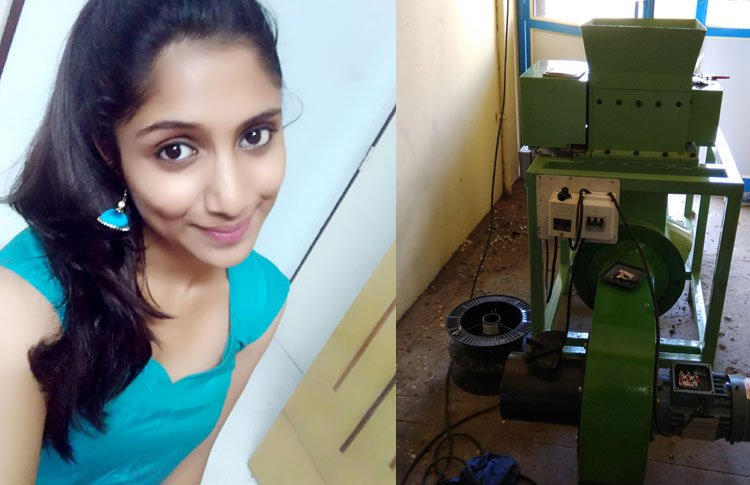
Our country has been trying to tackle the problem of waste management for a long time, and the best solution, they say, is to begin at home. Easier said than done? Twenty-two-year-old Nivedha R.M. doesn’t think so!
Nivedha has come up with a solution for waste management with TrashCon, a company that manufactures Municipal Solid Waste Semi-Automatic Segregators, which segregate any kind of mixed waste into biodegradable and non-biodegradable waste components.
A social entrepreneur, Nivedha is also involved in several other activities. One of them is the Concerned Citizens Club, a startup that offers technical assistance to NGOs to help them reach out to potential volunteers, organize and advertise events, and track the success of each event.
IWB spoke to Nivedha about her journey of taking trash to TrashCon. Excerpts below:
How did you come up with the idea of TrashCon?
From my institute, there was a shortcut to where I lived, but people preferred the longer route because that place stank, thanks to a pile of trash that seemed like it was never cleared. I decided to take it up with the Mayor and the Chief Engineering Officer and discussed why the area wasn’t cleared, but it ended up being a blame game. They blamed the residents, saying that they keep making it dirty even after repeated attempts to clean it, and the residents said that the government never cleaned the area.
That’s when I thought that I should take some action. A few of my friends helped me clean up the area, for which we also got media coverage. Unfortunately, a few days later, the place was back to the exact same condition as before.
So what did you do next?
I realized that the problem couldn’t be solved with ‘social activism’ per se, or one person trying to bring about a change. When you look at the larger picture, there are not many places left to dump waste as the landfills are overflowing. All these issues needed a one-stop solution, and I started thinking about using technology to fill this gap. I spoke to my professors and friends, who encouraged me even when everyone else thought it was impossible for a 21-year-old to achieve something like this.
Eventually, we started to research. After a lot of trial and error, we reached a phase where we made a useful invention. It is now a patented product.
That’s brilliant! Tell us a little about the role of government authorities in your initiative. Were they supportive?
It was an official who told me that, as an engineer, I should use my talent to build something rather than getting into activism. So, it won’t be wrong to say that the primary encouragement came from the authorities. The Telangana government was very supportive. They called us to give them a demo while the market-ready product was in the making. So, unlike popular belief, they were quite supportive and helpful. And I think that if you have the right idea and product, people won’t hesitate in helping you.
The government of Karnataka was the first to fund TrashCon, when they came up in the top 100 startups in Karnataka. The grant they received was not equity-based, but sheer funding.
How exactly does your product help in sustainable living?
It is a compact machine. There’s a slot for the operator to drop in mixed waste, which is then shredded. The shredder has been specially designed to shred any material. That shredded waste is then separated according to density. The mechanics of the machine are not as simple as they sound because it is challenging to separate bio and non-bio products.
It is an entirely mechanical-driven system, supported by IOT for troubleshooting and maintenance. We have achieved up to 98% efficiency, and we are working towards making a more efficient TrashBot 2. Currently, we are not shipping it across India due to limitations, but we have people from Chennai, Delhi, and cities across the country showing interest in the product, so we will look into it soon. Many embassies have also approached us and even put us in their top 5 most innovative startups list.
Now I see why you have been so busy!
(Laughs) The idea for TrashBot came to me in my second year of college. I have just graduated in July and have seen tremendous growth in the last three months. The pace has already been so fast that I couldn’t handle it myself. Somehow, the right things happened at the right time. I didn’t even have time to think about finance or market teams, I just went ahead with it.
The entire startup ecosystem is portrayed as competitive and difficult, but I think they are very supportive. Every entrepreneur has their own story to tell, and they understand my issues more than anyone because they have been through the same things.
Do you think there is enough awareness about segregation in the country?
There is awareness but in very few people. There are other small startups that are working towards technology and many people who are trying to spread awareness, but it needs to be on a larger scale. The majority of waste generated in India is bio-degradable, whereas in countries like the US, you see that the majority of their waste is non-biodegradable, which can be handled manually. This is why in India, you need technology to deal with the wet waste.
Around six plants in Bangalore have shut down probably because of issues that cannot be fixed. So, along with an engineering solution, we also need a management solution.
Okay! Now tell us about the initial process of making your product?
In the initial phase, we pitched our idea to every person possible, including our professors, the HOD, and department heads in the institution. We made them believe in it and showed them that there was potential. We were also named the best engineering project, as well as a ‘startup’ in the state, which is how we got some grants to come up with our first prototype.
But I didn’t know the traction until we participated in the National Waste Management Summit. It was there that I realized the potential of the product.
Whoa! You were part of the National Waste Management Summit?
Yeah, it was difficult to get in. It’s a long story.
I’m all ears…
When I requested to showcase my project, they asked for four lakh! Which I eventually brought down to 50,000 for a five-minute presentation during lunch break, and an additional 5,000 to enter the arena. This really discouraged me. Eventually, I did not take a stall but decided to go to the event.
Just before lunch, there was a question and answer session, so I took the mic and gave a half a minute pitch in the form of a question. That helped me get at least 30-40 people around me that day. The result was that I got a small informal stall with my tab, where I was showing short videos of the product. The next morning, I was on the front page of Telangana Times. That is how we hit traction, and once we hit traction, I had to start getting in money.
Smart girl! So you bootstrapped in the initial days?
My parents are public servants, and there are no entrepreneurs in my family. There was no way they could support me through this economically. I took a month to gather funds, and now I have received around five to six investors. However, we have chosen the government funding, and that is what we are using for the upcoming grants. I am confident with the market-ready product we have right now and, hopefully, it will work out.
Do you think having a funding strategy is a must for a social entrepreneur?
Money is always essential for any startup. Even for a social startup, seed money is required for initial tests. There are many limitations on stimulations, so you need to build a prototype and try out the product in real conditions. Thankfully, we received fundings at a very young stage. But if it weren’t for that money, I wouldn’t have been able to kick-start the product.
My plan before the fundings was to do a 9-5 job and then further my product. I didn’t think of giving up, but that would’ve been a really long struggle.
How did you strike a balance between your activities, academics, and now this new venture?
This is how I function. If I don’t have a thrilling experience in a day, I find it very dull. I like to face challenges head-on. Every day is a new difficulty that cannot be fixed by looking at someone else’s work because I am building a whole new market. So there is a lot of strain, but I find it exciting and not exhausting.
I don’t have a set schedule because every time I try to plan, something goes haywire. Yesterday, I wanted to go to my factory to run tests, but there was no power in the entire area for five hours. So these are unexpected events that keep happening. I go ahead with the most crucial task without thinking of the other things. If you have 100 things to do, start with one and then you will just have 99 more things, and that is how I maintain the balance and still have time for myself at the end of the day.
Excellent! Is there another feather in your cap that we haven’t talked about yet?
I hold business marathons with my friends. Once my friends and I started brainstorming an idea on a casual Sunday afternoon, and in 16 hours straight we came with an idea for an MVP. I like anything exciting and challenging. I read books, I used to write a blog to record my entrepreneurial journey.
First published on Dec 6, 2017.
- 0
- 0





